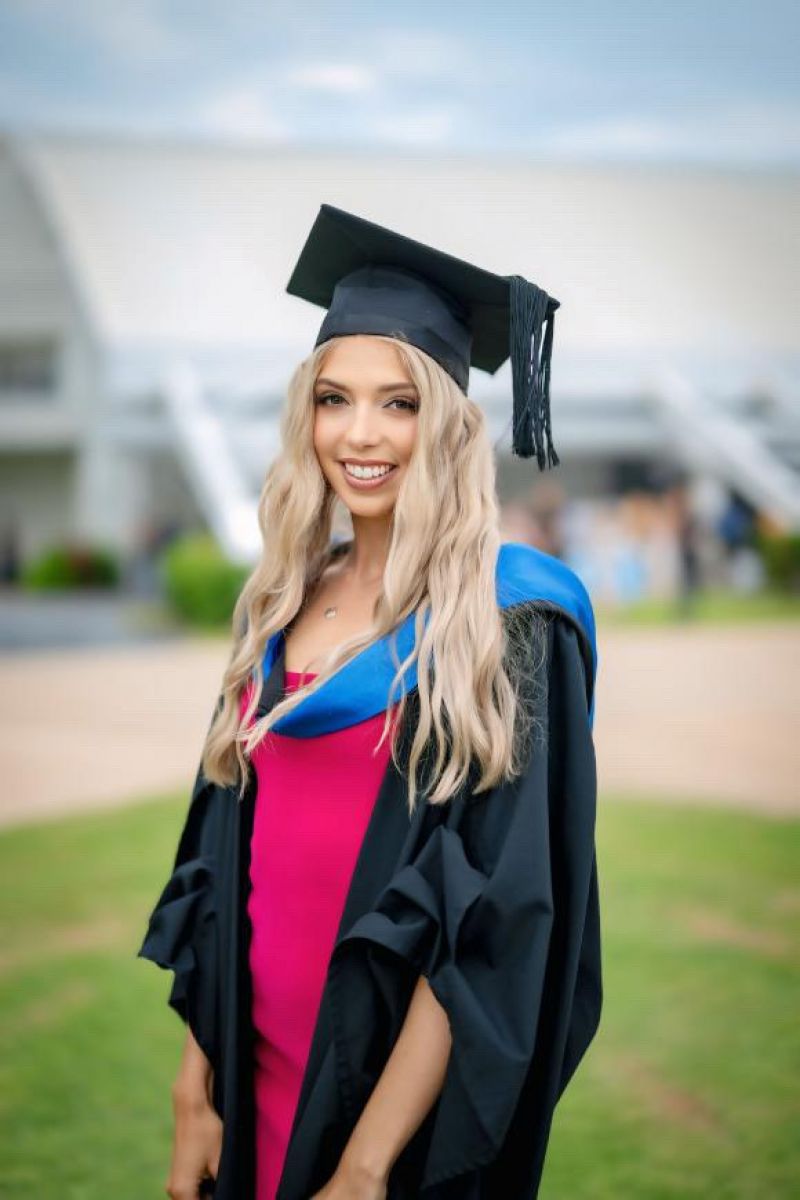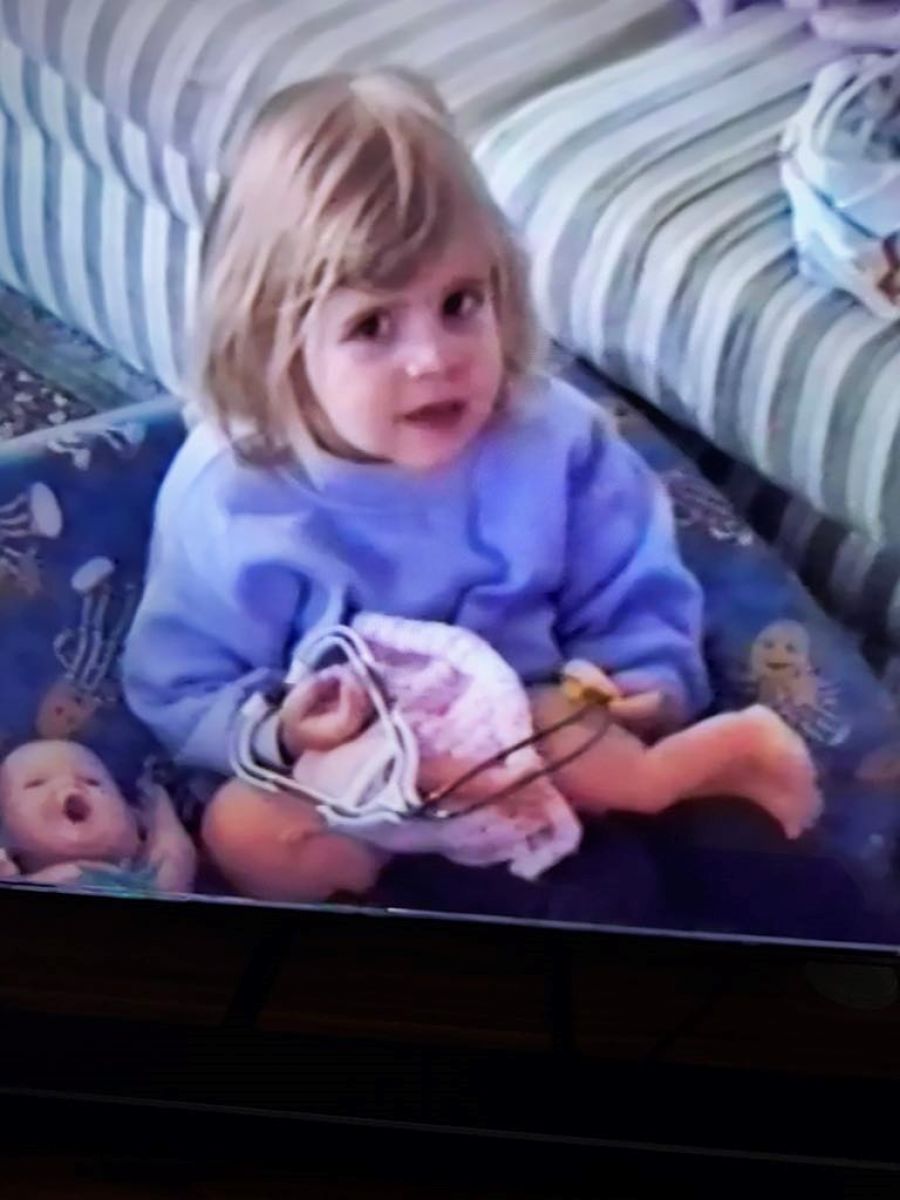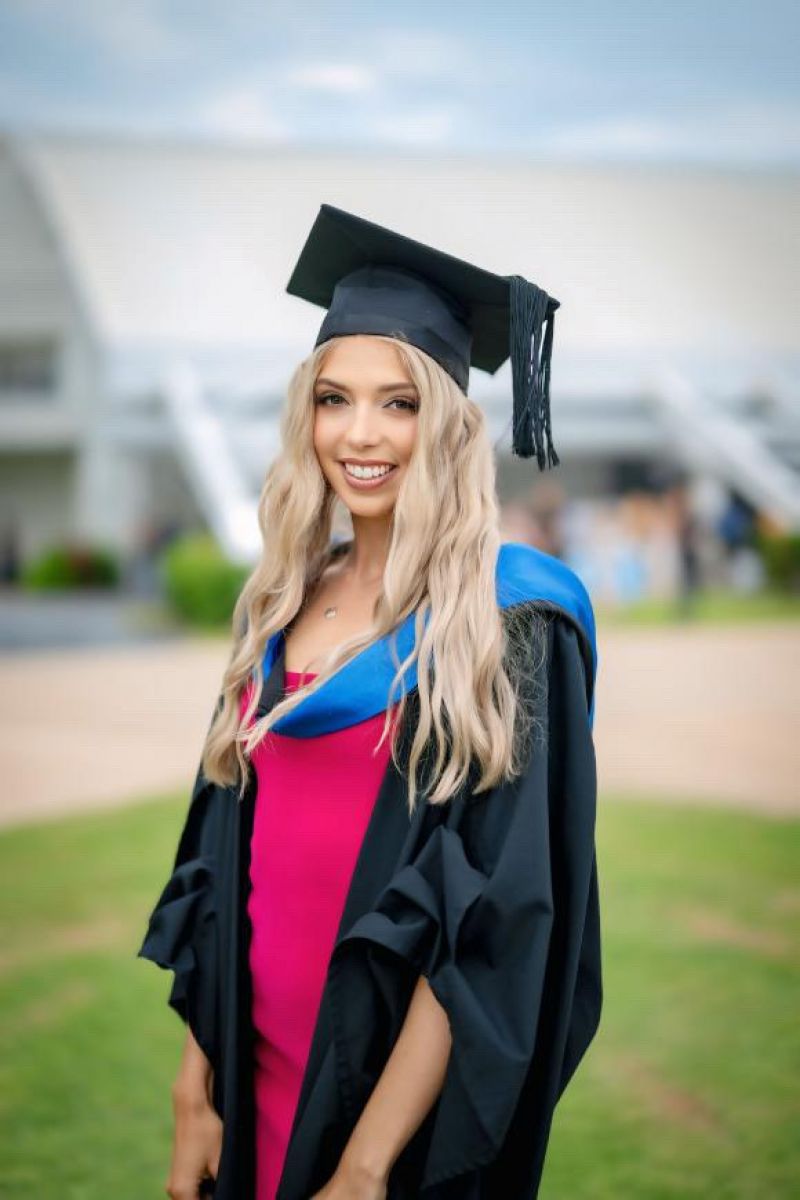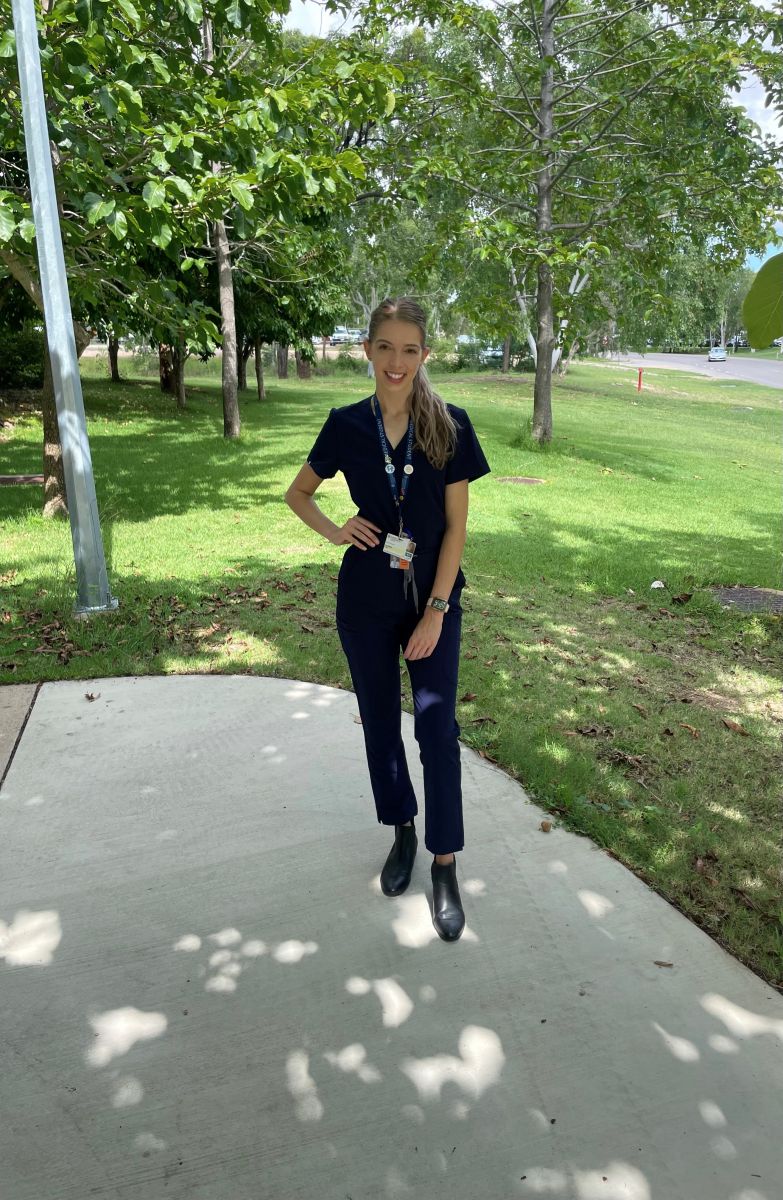15 October 2025
From Toy Stethoscope to Junior Doctor and Emerging Researcher

From the age of four, Lauren Bosley knew she wanted to become a doctor. Childhood photos show her carrying a toy stethoscope, and by six, her grandparents had gifted her a real one.
“Becoming a doctor has genuinely been a life-long goal,” Lauren says. “It’s truly a privilege to have earnt the title of a doctor all these years later and made my younger self's dream come true.”
Now undertaking her internship and currently working in the Emergency Department at Townsville University Hospital, Lauren studied medicine at James Cook University (JCU) in Townsville. Alongside her clinical training, she developed a passion for research—a passion that recently saw her named Runner-Up, Best Oral Presentation at the inaugural MED NORRTH Conference, hosted by NQRTH, JCU’s College of Medicine and Dentistry, and the Tropical Australian Academic Health Centre (TAAHC).
Lauren presented her research, which focuses on traumatic brain injuries (TBIs) and their treatment in non-metropolitan areas.
“My wonderful supervisor A/Prof Clinton Gibbs conceptualised the topic from his experience working in retrieval medicine,” Lauren explains.
“From our research and my time working in neurosurgery this year, I have become passionate about highlighting the inequalities that those without prompt access to neurosurgeons face.”
Lauren says despite the literature highlighting that those with severe traumatic brain injuries require time-sensitive neurosurgical intervention; the state of Queensland only has four neurosurgical centres.
“With the other three centres in Brisbane and the Gold Coast, during (Tropical Cyclone Alfred, which hit South East Queensland earlier this year), Townsville was the only centre unaffected, so we had a significant patient load, and patients faced significant delays to reaching care. We need to ask, what are the alternative treatments for patients without neurosurgeon access?”
Lauren also presented her poster and research at the Rural Medicine Australia 2025 conference in Perth in October, where it was very well received.
"It opened such exciting and relevant discussions ... It's really great that one of our target audiences are now aware of this study's relevance, and the conversation about our topic is further developing. From the presentation, I even got encouraged by a Royal Flying Doctors representative to present at the Aeromed Conference next year.
She also relished the networking opportunities presented at the conference as well as the invitation to sit on an academic panel called "Rural ready: supercharging professional support for doctors".
Her research found that while national rural neurotrauma guidelines recommend that non-neurosurgeons perform surgical decompression for deteriorating patients more than two hours away from specialist care, the practice is “incredibly uncommon, both in Queensland and worldwide.”
Lauren’s research publication, which she presented at the Townsville NORRTH conference and at the Rural Medicine Australia conference in Perth can be accessed here: https://pubmed.ncbi.nlm.nih.gov/40400118/
Lauren was a committed, high achieving student at medical school, picking up the anaesthetics, psychiatry and general practise subject prizes whilst a student at JCU. She says her interest in research grew during medical school thanks to her scientific mind and natural flair for language.
“I enjoyed the process of writing a literature review within my degree, and a lecturer encouraged me to consider further research,” she says.
“After finishing my exams in my fifth year of medical school, I wanted to continue academic endeavours outside of placement and work, so I commenced my honours in my final year and am due to finish this year.
“These studies have given me a newfound appreciation of all the work that goes behind any research in terms of significant planning, protocol writing, systematic literature reviews, analysing results, drafting, and submissions to publishers. By engaging in this process, I feel that I can better interpret publications that directly inform evidence-based medicine within my practice.”
Since graduating, Lauren has rotated through neurosurgery, anaesthetics, general medicine, and now the emergency department at Townsville University Hospital. “Research-wise, I plan to present my scoping review in Perth at the Rural Medicine Australia Conference next month and submit my manuscript for the honours degree,” she adds.
For Lauren, the role of research in medicine a top priority: “Research is imperative to allowing us to deliver evidence-based medicine and essentially, the best possible treatments to our patients. Medicine is a forever-evolving field, so it is important that as clinicians, we remain up to date with developments within the research. Understanding research also allows me to correct misinformation that patients may have read from non-reputable sources online, and direct them to accurate, scientifically valid and peer-reviewed studies.”
Reflecting on the recent inaugural MED NORRTH Conference held in Townsville, Lauren says:
“The Med NORRTH event was very successful! It was inspiring to see the incredible research that colleagues at all stages of their medical careers are engaging in.
"Events like this are great opportunities for those of us more junior to research, like myself, to network with potential supervisors and receive feedback from colleagues. I definitely hope there are future events.”
From toy stethoscopes to medical honours, Lauren has followed through on her childhood dream with determination and care. Good luck with your research Lauren, we can’t wait to see where it leads!


NQRTH is an initiative of the Australian Government's Integrated Rural Training Pipeline (IRTP) and is facilitated by James Cook University in partnership with public and private hospitals, Queensland Aboriginal and Islander Health Council (QAIHC), health services, Aboriginal Community Controlled Health Organisations (ACCHOs) and GP clinics.
Cairns region
(07) 4226 7138
Central West region
(07) 4764 1547
Mackay region
(07) 4885 7122
North West region
(07) 4764 1547
Torres and Cape region
(07) 4095 6103
Townsville region
(07) 4781 3424





